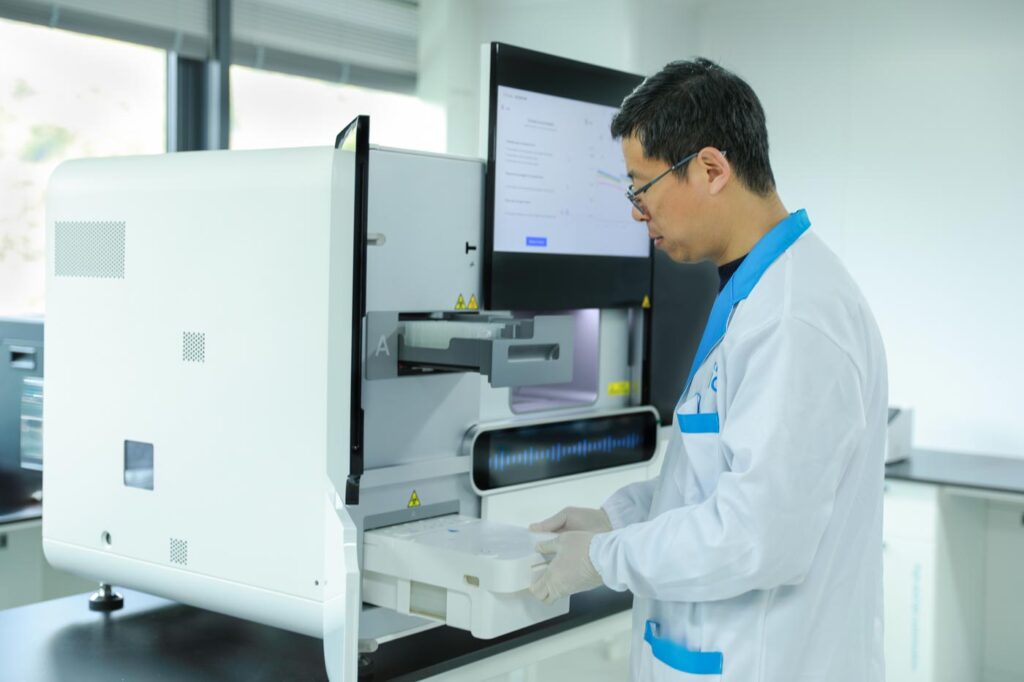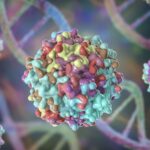Sponsored content brought to you by
In genome sequencing, everything needs to be just right. It should be just right in terms of data quality, turnaround time, cost, and equipment ease of use. In some cases, those criteria are crucial. For example, in a podcast produced by MGI for World Cancer Day in 2025, Gareth Gerrard, PhD, a clinical scientist and scientific lead for cancer at the South East Genomics Laboratory Hub in London, discussed the use of sequencing in the treatment of non-small cell lung cancer, and he said, “We know that almost every week that goes by that patient doesn’t start one of these treatments, it impacts their outcome.”
As a developer and manufacturer of sequencing platforms, MGI’s DNBSEQ sequencing technology provides high-quality data through an efficient and easy-to-use workflow. Moreover, MGI already offered two options that provide sequencing in 24 hours. Its DNBSEQ-T7 and DNBSEQ-G99 provide high- and low-throughput sequencing, respectively.
In some applications, a high-throughput sequencer might be too much, because it requires a larger sample size than some customers have. Conversely, a low-throughput sequencer might not handle enough samples for some uses. That leaves a perfect position for a mid-throughput sequencer with a 24-hour turnaround.
According to Rob Tarbox, VP of product and marketing at MGI’s subsidiary Complete Genomics, “Mid-throughput sequencing machines available in the market generally had the drawback of excessively long turnaround times, failing to meet customers’ efficiency requirements.”
So, scientists at MGI and Complete Genomics set out to meet the mid-throughput needs of scientists and clinicians. To do that, the company gathered sequencing requirements from domestic and international customers. The results revealed high expectations. For example, customers wanted a mid-throughput sequencer that produced data in 24 hours or less, and provided Q40 sequencing, which is 99.99% accurate.
In pursuing those objectives, says Tarbox, “The most difficult part of our R&D was pushing the limit in physics.”
Mid-throughput sequencing in 24 hours
Nonetheless, the team succeeded in the fight against physics and produced the mid-throughput DNBSEQ-T1+, which was released at AGBT 2025. In just 24 hours, this platform can sequence 600 giga-bases when using a single flow cell or 1.2 tera-bases with a dual-flow cell. Despite that speed, the data quality surpasses Q40 quality.
Meeting these objectives required many advances in the DNBSEQ-T1+. For example, it supports three flow-cell formats: FCS, FCM, and FCL. Plus, each large flow cell can be operated independently and includes four addressable lanes. “This is pretty much like a dual-SIM, dual-standby phone,” says Tarbox. “You can test a sample anytime or at the same time.”
These features of the DNBSEQ-T1+ allow customers to design very efficient workflows. “For example, they can do cleavage and incorporation in one flow cell, and scanning in the other flow cell,” says Tarbox.
This sequencing platform also uses improved biochemistry, fluidics, optics, and temperature control. As Tarbox explains these features of the DNBSEQ-T1+: “Its cutting-edge fluidic system achieves highly accurate reagent transfer with ultralow cross contamination using advanced and intelligent pressure control strategies, while the TDI [time delay and integration] line-scan imaging system captures optical signals in real-time.”
Overall, the DNBSEQ-T1+ fits many applications, including tumor sequencing, whole-genome sequencing (WGS), whole exome sequencing (WES), and cutting-edge multi-omics studies, such as single-cell and spatiotemporal omics. “For example, it is suitable for family-based WGS,” says Tarbox. “Say a newborn baby has cancer or a rare disease, then you will need to do gene testing for the parents and siblings.” With traditional sequencing, that can take a week, which might be too late. “Now with T1+, we can run four people’s WGS samples at the same time, and get the data in 24 hours.”
Now, MGI and Complete Genomics offer a comprehensive family of sequencers: the T7 for high-throughput, the T1+ for mid-throughput, and the G99 for low-throughput. Each of these platforms can complete sequencing within 24 hours, which meets the needs of researchers and labs around the world.




